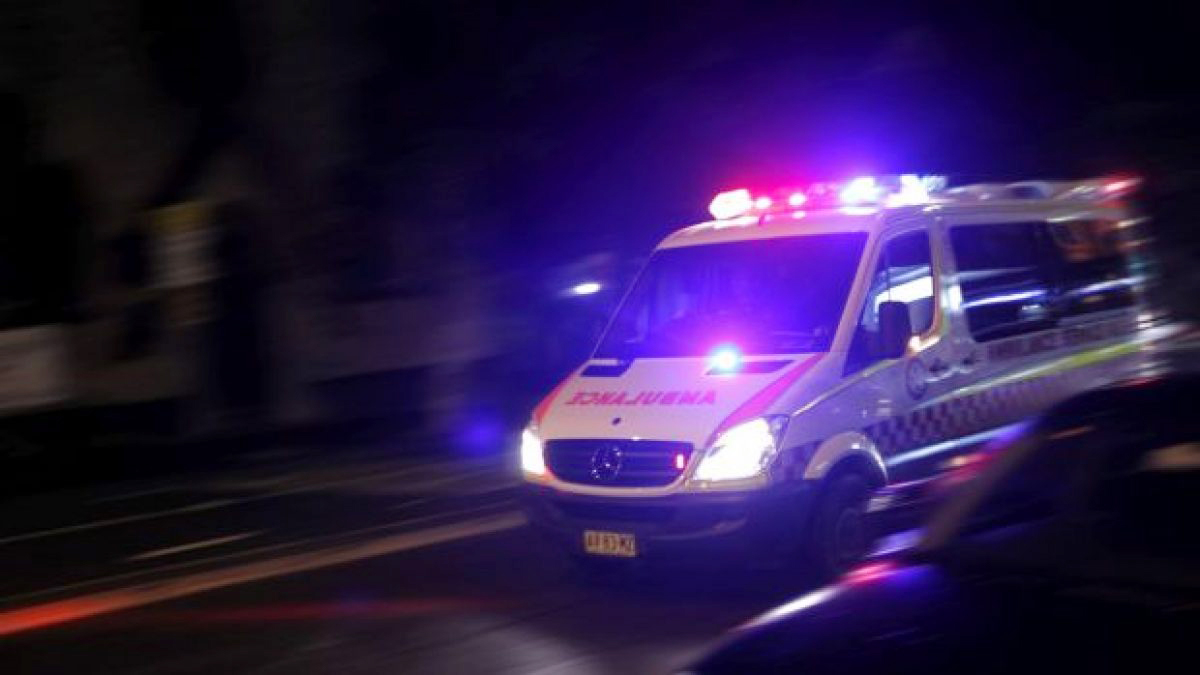
Featured Item

Families of patients can get ‘post-traumatic stress disorder’
Published
3 years agoon
Sigal Josselowitz never got to say goodbye to her father after he was admitted to hospital with COVID-19 at the beginning of December 2020. During their last conversation, he was complaining about having to wear an oxygen mask, and she gently encouraged him to use his energy to heal instead of arguing with those trying to help him. Shortly afterwards, he was put on a ventilator, and two weeks later, he passed away.
“Watching family members being admitted to hospital with COVID-19 can lead to trauma,” says clinical psychologist Daniel Rabinowitz from Cape Town Psychologists in Sea Point. “The definition of post-traumatic stress disorder in the Diagnostic and Statistical Manual of Mental Disorders is that if you even witness somebody that’s going through some sort of threat to their lives, then that’s considered a trauma in itself. So it doesn’t only have to be the individual themselves who experiences the trauma, [it can also be] those who witness it.”
Paul Rubinstein didn’t have contact with his wife, Liza, for about a week after she was admitted to hospital with COVID-19 pneumonia in the early hours of 16 July 2020. “COVID-19 is a devastatingly lonely virus. It’s one thing to not be able to visit a loved one, it’s another to not have any contact whatsoever with them,’ he says.
“With hospital staff being so overwhelmed during this time, we were unable to get much feedback about her condition. We called the hospital daily, but couldn’t get much information other than through nurses who would tell us that Liza was ‘okay’ and ‘stable’. They were doing their best, but it was all a bit vague and of little comfort. I did receive a call late one evening in that first week from Liza’s treating doctor at the time. I don’t recall exactly what he said, but it was something to the effect that she was stable but still in a very fragile condition. It was all very surreal, and we didn’t know what to think.” Eventually, when Dr Anton Meyberg and Dr Carron Zinman took over her case, communication improved.
“With the help of Liza’s physiotherapist, Darryn Edinburg, we were able to get her cell phone to her and other personal things. She was then able to text us after about a week. We could see from her texts that she was very disorientated and clearly not in a happy state of mind. She was also very uncomfortable wearing the oxygen mask,” says Rubinstein.
“Liza actually has no recollection of the morning she was admitted and the first few days thereafter. I can only imagine what must have been going through her mind when she woke up in a strange place not knowing what was going on, no means to contact anyone, and with no family around to comfort her,” he says. While she recovered enough to be discharged, she remained on oxygen and was closely monitored. The trauma of her time in hospital is one that nobody in the family will forget.
“There was a 2019 study that found that if a family member is hospitalised unexpectedly and other family members are left to wonder about the family member that is admitted, they experience a whole heap of anxiety and distress,” says Rabinowitz. “Many family members are left feeling as though they have lost control, and it then interferes with all kinds of decision-making on the part of the family and has an impact on how much power the patient has themselves. Eventually families do habituate [get used to the situation], but it takes a while. The family can experience what we call trauma, post-trauma, or post-intensive-care trauma.”
Andrea Berzen has endured the rollercoaster ride of having both her parents in hospital, with both rapidly deteriorating, and not being able to do anything to help them. “We live six kilometres away from the hospital, but we might as well have been 6 000 kilometres away,” says Berzen. The sole benefit of being close was the ability to send letters and balloons to celebrate her father’s birthday to both parents, but “my mom was in such a bad way, she doesn’t recall the balloons being there”.
Her mother, who is 79, was admitted on 1 January, and her father, 81, was admitted on 4 January. They were in two separate wards at Linksfield Clinic, and “Dr Zinman did her best to give me reports every day. She said to remember that ‘no news is good news’.”
“But then, my mom took a turn for the worst and was admitted to the intensive-care unit (ICU). I remember Dr Zinman calling me at 22:30 that night as it was the first time she got to the phone. When my dad heard that my mom was in ICU, he also suddenly deteriorated. For a day or so, they didn’t know what was going on with him, but then they found he had COVID-19 pneumonia.”
Her mother struggled emotionally. “She didn’t want to go on. At one point, she was on 60 litres of oxygen per minute. When we were able to have a video call, we could see she wasn’t in a good way. It was really nightmarish.”
As both parents deteriorated, the possibility of Berzen being allowed to visit was considered, and she waited a whole day to hear if she would be allowed in. It never happened, but then Zinman proposed putting her parents in the same room as Berzen’s mother had improved enough to leave ICU, but they were still very worried about her. It took the whole day to organise, but by that evening at 20:00, both parents were in the same ward.
“The next morning, Dr Zinman called at 10:00 to say she’s never seen such a connection between two people, and both parents had just turned the corner. That was on 12 January, and every day there has been improvement. My mother was discharged on Tuesday [26 January], and we hope my dad will also be discharged this week, but they will need recuperative care. You never know what can happen with COVID-19, and we don’t know if they’ll ever go back to how they were.”
“What’s hard [about COVID hospitalisation] is not only the lack of contact, but the feelings of powerlessness, passivity, and distress caused by uncertainty,” says Cape Town clinical psychologist Ilana Edelstein. It’s compounded by people being disconnected not only from the person in hospital, but also from family and friends who would ordinarily provide support. Even if a person hasn’t been personally affected by pandemic, he/she can develop vicarious trauma by repeatedly watching others suffer.
However, there are ways to empower ourselves. “Over the past year, it has become apparent that all of us are vulnerable to contracting the virus and once infected, the trajectory of the illness is unpredictable. The uncertainty of COVID-19 necessitates that we make changes in our lives,” says Edelstein. “It highlights the urgency for us to try as much as possible to get our emotional affairs in order, much as we may try to get financial matters in order.
“We need to take every opportunity to validate our loved ones in action and in words. We need to communicate openly and transparently. Trauma in this way becomes a powerful force for positive change – for stronger relationships and deepening appreciation of life,” she says.
“Avoid regret and potential guilt. Don’t take your loved ones for granted. Communicate frequently, and make time for those who matter in your life. And treasure each day and try to cultivate gratitude. If your relationships are good, the process will be less complicated than if you are struggling with a lot of unresolved issues.”










